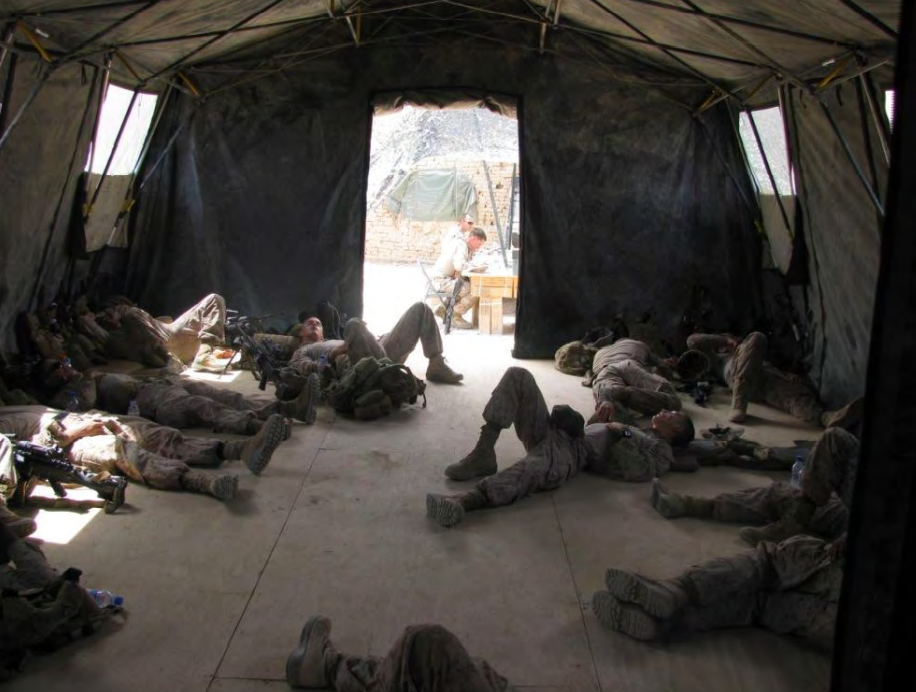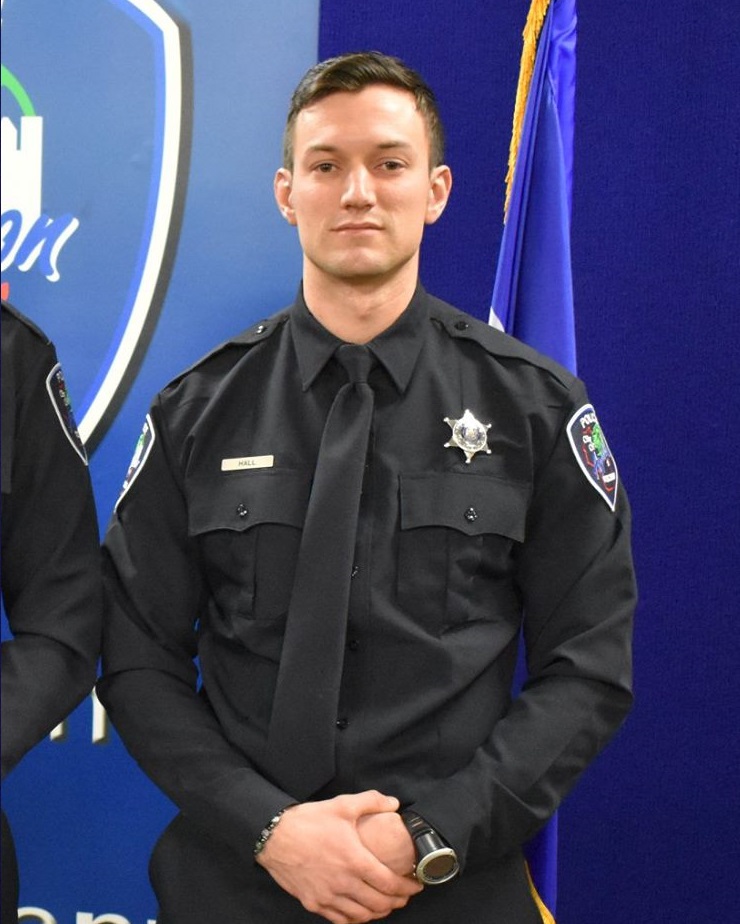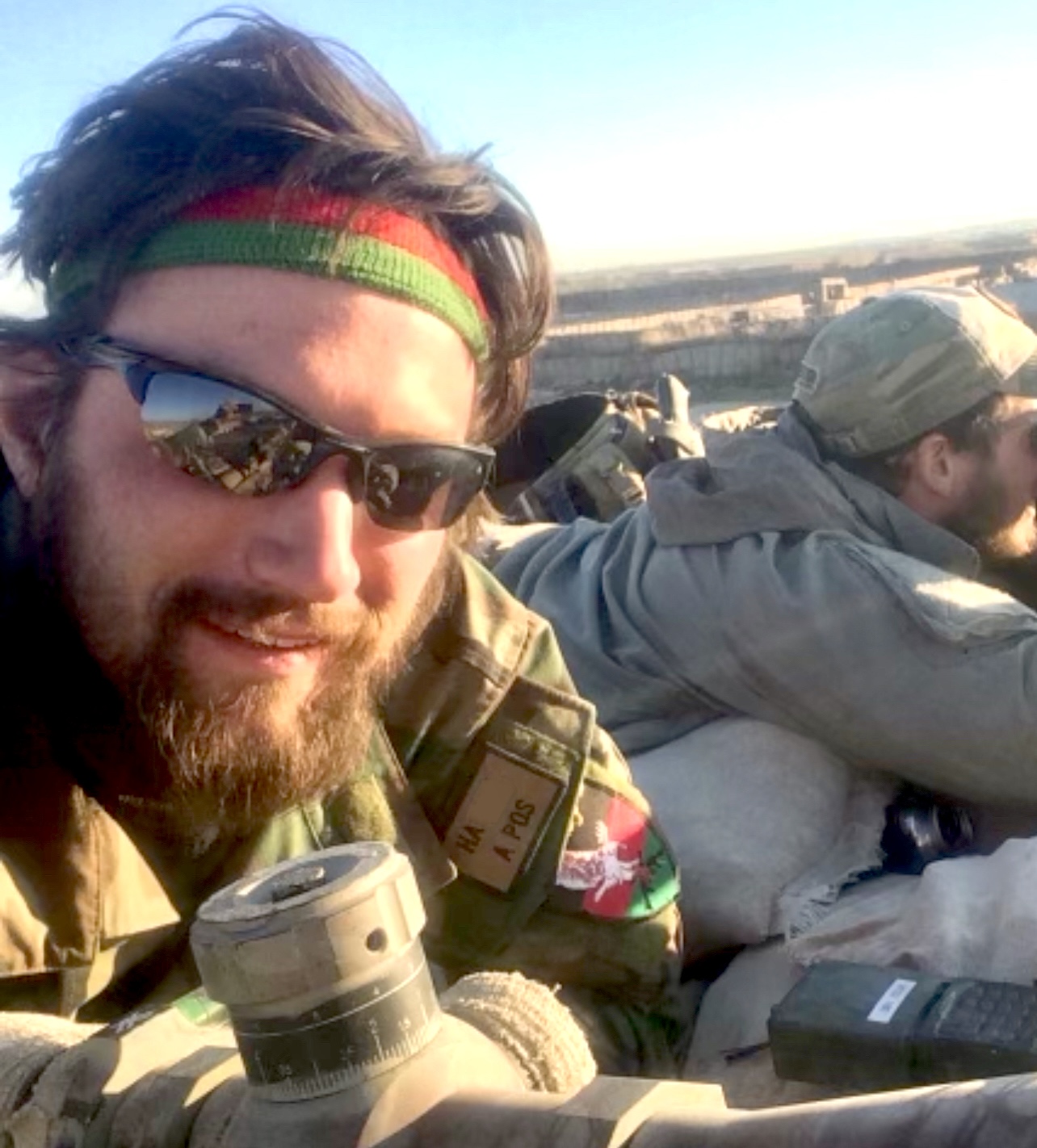Let us remember, “It is foolish and wrong to mourn the men who died. Rather, we should thank God such men lived.”
01 June 2011 – Letter from the Commanding Officer: “Living conditions at Patrol Base Alcatraz are very austere. There are no showers, laundry facilities, chow hall, or pretty much anything else one would think of as a necessity of modern life… the camp or water bottle shower remains the best we can do to keep clean and cool.“

Just days prior, the men of 3rd Reconnaissance Battalion had landed at Camp Leatherneck, Afghanistan after a 36-hour layover in Manus, Kyrgyzstan. The men laid out their soaked gear from the downpour they had experienced in Okinawa prior to stepping off. The men would be tasked with pushing further into RC South, establishing a new patrol base on key enemy supply routes to disrupt insurgent activity while establishing increased security for the local populace
Austere was being mild in that the newly formed base was literally a run-down set of vacancy buildings with barrier walls that offered just a few feet of concrete above the Marines heads. Using makeshift sinks for daily hygiene, sleeping on sand-covered cots, and shading themselves from the 120 degree heat in old, abandon Afghan huts. On 06 June 2011, the men of Bravo Company, 3rd Recon Battalion had their mission to patrol a local village in Sangin Valley.
It is never a good thing to watch women and children flee the streets. Even the livestock fled as if they knew what was about to occur. A “mass exodus” of anything living, left just the Marines standing in the village. Within minutes, a barrage of 20-30 enemy combatants begin reigning gunfire down on the Marines, they were surrounded, and the enemy was utilizing 14 known fighting positions and, at one point, had enveloped Bravo Company, by 200° and closed the coordinated attack on the Marines from 375 meters to 36 meters one report mentions. After nearly an hour of fighting, one commander ordered the drop of a danger-close 500lb. GBU-54 laser-guided JDAM (consisting of 250lbs. of steel and 250lbs. of explosives, meant to neutralize combatants in all directions). Despite requests by others for the commanding officer to consider a less lethal means in hopes of protecting the Marines on the ground, he ordered the JDAM fired.
The JDAM dropped within 36 meters of the Marines – the video above shows a Charlie Platoon watching the incident unfold on Bravo Platoon. The entire platoon had been exposed to significant, brain-injurious blast waves and a slew of airborne toxins. The JDAM was unsuccessful and two HIMAR warheads followed. Marines from the platoon say they are only alive because of the canal inlet they were able to jump down into for some protective shrapnel cover. There was a whole investigation on the incident that can be read here.
One of those men from Bravo Platoon, 3rd Recon Battalion was Marine Corps Sgt. Dominic Hall, a 21-year old from Appleton, Wisconsin. This would be Dominics’ first of two deployments overseas to Afghanistan. Thinking back to a conversation with Dominic about this incident, he briefly touched on the physical “shock” the JDAM sent, but was very humble about his roll in the activities, some of which he would earn a valorous medal for.
I met Dominic in the Fall of 2021, but the impact he has had on me will be everlasting.

He was just 31 years old, recently separated from the military, a husband to his beautiful wife, Jacole, and a father to their two beautiful sons, Victor and Thorin. Even after separating from military service, Dom had a passion to serve others, a true man of God. He was a sworn member of the Appleton Police Department serving as a member of their SWAT and Sniper units. During an incident on July 25, 2019, Officer Dominic Hall and his trainee saw a man who appeared highly intoxicated and in need to a mental health and wellness check, and while Dom was speaking to the man, he pulled a knife and began stabbing himself in the neck, causing immediate, life-threatening injuries. Dominic was honored with the Department’s “Life Saving Award” as if he hadn’t intervened, providing life-sustaining medical aid and support, this man would have died. But this is just one example of his selfless-serving, heroic actions.
He wasn’t one to brag about his service or accomplishments, in fact, you’d never know he had accomplished so much in such little time as the merit and medals were not ranked high on his list, more so, his greatest accomplishments in his opinion were his two boys. We found out how incredible this man was through candid discussions with his wife, Jacole. Unfortunately, the purpose of our meetings was under unfortunate circumstances.
Dom didn’t drink, he didn’t smoke. He was fit and healthy, exercised often, and ate well. That is why it was odd to the medical staff and care team when this 30-year old man arrived at the Emergency Department in May of 2021 with severe abdominal pain and stomach upset. Oddly, the young veteran had significantly elevated liver enzymes and an elevated “bilirubin’ level at six-times the normal limit. An odd situation for a man of his background. Days later, Dom had his blood work drawn again, however, his levels continued to exceed well above the normal limit. Days later, an imaging scan identified an ill-defined mass on the pancreas, consistent with malignancy (cancer). Fortunately, it was localized but did have vascular involvement.
The diagnosis for 30-year-old Dominic Hall was stage 1B pancreatic adenocarcinoma. Despite the presence cancer, his civilian care team thought that the tumor was “borderline” resectable, and decided the best route would be an in-house clinical trial with neoadjuvant therapy in June of 2021. His care team assumed that due to his demographics and not meeting the “usual” profile of an individual with pancreatic cancer, that he was the victim of a genetic mutation related to a familial disposition (Lynch Syndrome), though it was never verified.
Nearly two months into treatment, the side effects were too severe and his medication was switched over and over again. His symptoms worsened, excessive nausea and vomiting, weight loss and pain so severe he had to step away from his job as a police officer within Appleton. At this point, we began working to assure Dominic had the most inclusive, evidence-based care possible and reached out to Dr. Thomas Abrams at Dana Farber Cancer Institute. Around the same time, the cancer had begun to spread to Dominics’ liver. By January 2022, a liver biopsy confirmed the worst – metastatic pancreatic adenocarcinoma with liver involvement. I sat back and wondered how could his cancer go from stage 1B to stage 4 so quickly.
The liver biopsy result came back, and genomic profiling showed a few mutations, KRAS, CDKN2A, and TP53 but oddly enough, the suspected “genetic” marker was absent. There was no sign of the suspected genetic predisposed Lynch Syndrome his care team initially thought. While reading this, I took a deep breath in and let a long sigh out.
Sitting and speaking with Dominic and Jacole, attempting to find answers, solutions, and possible avenues of approach to assist in curing this man, I began to learn who exactly Dominic Hall was.
Dominic enlisted in 2008 into the United States Marine Corps as a Reconnaissance Marine candidate. Graduating from Boot Camp and School of Infantry-West in December 2008, completed the Basic Recon course by March 2009 and found himself at the 3rd Recon Battalion in Camp Schwab, Okinawa, Japan by April 2009. Dom had spent a significant amount of time in the Pacific, including time stationed abroad on the USS Essex, Harpers Ferry, and even supported the USS Ronald Reagan following the events of the Fukushima Nuclear Reactor incident.
When Dominic mentioned this event that took place in March 2011, I had no idea what he was talking about. It wasn’t until I decided to read up about it that it was determined radiation and radioactive components were released and those who responded were potentially exposed. The U.S. Nuclear Regulatory Commission released a report that the radioactive levels between the months of March to September 2011 had been released into the air and ocean. One radioactive material was Iodine-131 and the others were Cesium-134 and Cesium-137. Just like most chemicals, and medications, radioactive substances have a “half-life” as well. Half-life is defined as the time taken for the radioactivity of a specific isotope to fall to half its original value, in turn, weakening the substance itself.
Iodine-131 has a half-life of 8.1 days and its risks can be mitigated through the use of iodine tablets (which the Navy did supply most service members within the immediate). The half-life of Cesium-134 extended 2 years, whereas Cesium-137 reached a half-life of 30 years. So, yes, still to this day, some Cesium particulates lay dormant on the beaches surrounding Fukushima. Being of an inquisitive nature and of a scientific background, I immediately searched the National Library of Medicine to find out about this unfamiliar exposure.
“The pancreas is metabolically a very active organ. The pancreas has high blood perfusion from the pancreatic arteries and can accumulate inside its cells a considerable amount of radioactive 137-Cs able to damage cell DNA, correlating the connection between radioactive Cesium and the increase of Pancreatic Cancer…”
The above was published in September 2021 by Sebastiano Venturi in the International Journal of Environmental Research and Public Health, noting the increase in pancreatitis and pancreatic cancers following the Fukushima incident in Japanese residents in the areas.
My heart sank into my stomach and I felt as if I was going to vomit as I continued to read. Shockingly, I had never heard of this and wondered how many others were affected by this exposure. The list of cancers, and cancer-related deaths is quite long. Focusing on Dominic, I opened an Excel worksheet and began to document the potential exposures unique to Dominic dating from his time at Camp Pendleton, California. We tracked the time, location, exposure duration, and amount as evidenced by whichever documents we could mine-sweep using artificial intelligence programming.
Months after the Fukushima incident, Dominic was deployed for the first time to Afghanistan in support of Operation Enduring Freedom with the mission and intent to counter increasing insurgency and provide safety for the locals. Within days of being at PB Alcatraz in Sangin Valley, Dominic came within meters of being hit with danger-close JDAMs, and constant firefights, and it hadn’t even been a month. I continued through Dominics’ military records file and came across a Navy and Marine Corps Achievement with Valor award dated 05 August 2011.

“On 5 August 2011, while conducting a five-day, company-sized clearing operation in the village of Malozai, one of Sergeant Hall’s Marines was shot while providing security from a rooftop overwatch position. Without hesitation or concern for his own safety, Sgt. Hall bolted to the rooftop position where the casualty was, took control of the M240B on post and provided covering fire and overwatch, allowing the platoon to pull the casualty off of the roof. In the same position where his fellow Marine was just shot, Sgt. Hall stayed behind the machine gun to provide suppressive fire without regard to his own safety, which led to the successful evacuation of combat wounded… Later that same day, an enemy fragmentation grenade was thrown into his platoon’s compound by a well-concealed enemy fighter. The grenade sent fragmentation into two Afghan National Army soldiers, both whom received critical injuries. Despite having a grenade explode within 10-feet of him, Sgt. Hall immediately provided life-saving aid to the first ANA soldier and both would survive their injuries solely due to Sgt. Hall’s treatment…”
I thought, wow, that is A LOT to take in over 24 hours. But Dominic, stoically, was unmoved, not phased and had his mind set on his mission. Even for the most mentally tough, speaking from a trauma medic / nursing position, that is heavy to witness and can even turn the most battle-hardened men into stone, but not Dominic. His heart, mind, and soul were as pure as they could possibly be.
He returned to Okinawa, from Afghanistan in December 2011. Had spent a few months in Japan before moving to the Marine Corps Reserves and heading back stateside. In the meantime, Dominics passion for serving continued, he wanted a challenge, he wanted to do more, and the reserves weren’t cutting it, so in December 2012, Dominic re-enlisted into the Ohio Army National Guard as a special forces candidate (18X). By August 2015, Dominic had earned the infamous ‘Green Beret’ and graduated his class with high honors.
Back in Ohio, he would be assigned to Bravo Company, 2nd Battalion, 19th Special Forces Group as Special Forces Weapons Sergeant. During that time, meeting his beautiful, brilliant wife, Jacole. If you knew them both, you’d know they were made for each other. While waiting for orders to re-deploy to Afghanistan, Dominic was assigned to some smaller tasks within the unit. Looking through his records file, we found orders placing the young soldier on “Demolition Duty” that rated “Hazardous duty pay” which warranted some interesting stories from Dominic.
Meanwhile, we kept our running-excel sheet on Dominics exposures, the list was quite impressive. The newly promoted Staff Sergeant would step off for a second rotation to Afghanistan, this time to RC East with 19th and 7th Special Forces Group. Within the first few days, SSgt. Hall would receive his Combat Infantryman Badge as his ODA began taking constant PKM fire in the Sahak Village in Paktiya Province. In addition, a Bronze Star, Army Commendation and Achievement Medals, Valorous Unit Awards – honestly, too many awards to keep track of.
Fast-forward to earlier this year, January 2022.
Dominic was told his cancer had progressed to stage IV and had spread to his liver. He was only 32 years old and as mentioned, nothing about his cancer made sense. I sat at my desk all hours of the night, sometimes as late as 1:00 am, looking for answers, asking questions, finding the best pancreatic cancer providers in the nation, I even reached out to Dr. Kelly Lafaro – one of the best, most highly recommended providers at Johns Hopkins via LinkedIn and requested Dr. Thomas Abrams from Dana Farber Cancer Institute review his case. Yes, it meant that much to me.
Our exposure roster continued, and we found over 50 chemical compounds, exposures, heavy metals, isotopes and toxins that Dominic was likely exposed to using this newly created form of learned machine activity. We knew the exposure, the date(s), the specific event, and the locations. We even had documentation to provide legitimacy with the exposure of this specific veteran. We knew the route of exposure, as ingested has the outcome of a different system than dermal, and so on. We knew Dominic was exposed to Cesium-137 via ingestion at 6,340 Bq/kg on March 15, 2011. Or that the danger-close JDAM exposed Dominic to airborne 2,4-Dinitrotoluene (2,4-DNT) on March 6, 2011.
As the year progressed, so didn’t Dominics’ cancer. His local care team said it wasn’t possible to operate. His wife had told me his condition was worsening, deteriorating quickly, and his care team said realistically he most likely wouldn’t see the end of September.
We shared a story done by the Compass News recently, asking those who support the foundation to pray for Dominic and the Hall family. Mid-August, the chemotherapy, and active treatments had been discontinued. Dominic had just turned 33 in late August, he saw his oldest son off to his first day of school.
Dominic said… “If things don’t work out, I am prepared to accept that. Ultimately, from what I am gathering, the liver going into failure is what will take my life. There are a lot of nights that I don’t sleep because of the pain, but knowing that people are out there praying for me, I can’t put into words how much it touches my heart and how much it means to me that people are taking time out of their day to pray… it gives me so much hope.
We’ve thought of Dominic often during this time, his wife and children. I received a text from Jacole last Friday, she told me he was in the hospital and was more comfortable, and peaceful where days prior, he whispered what would be his last words to his wife, “I love you too…”.
When asked what I could do, and what she needed, she asked we pray for a peaceful rest for Dominic. My heart shattered. The strength of this woman was a match for her strong, stoic husband.
Reconnaissance Marine, turned Army Green Beret, SSgt. Dominic J. Hall, was called home by God on September 4th, 2022 at 12:23 pm.
I told Jacole months ago, that what Dominics’ story did was created a new way for us, fellow medical providers to review toxic exposures using evidence-based findings, artificial intelligence, and rapidly producing machine learning. Undoubtedly, if we knew the plethora of Dominics’ exposures beforehand, his treatments would have been vastly different. Dominic was “Veteran-Zero”, the first-ever veteran to be tracked through this next generation of exposures, and I told his wife, this is huge, this will impact so many lives for the better, for good, and provide insight into cancers that could be stopped. A man of honor, stoicism, pride, dignity – in a tragic situation, Dominic chose to look at it in a positive light.
